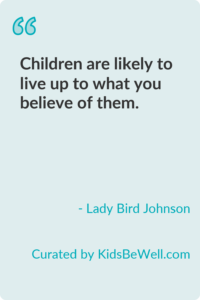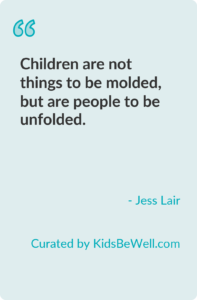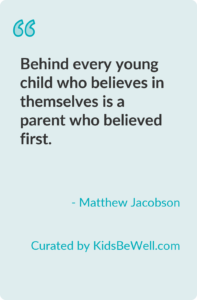Teaching Kids Resilience: Getting Up After Setbacks
Parenting is as much about preparing children for success as it is about teaching them to handle failures. The quote, "It’s not whether you get knocked down, it’s whether you get up," highlights the value of resilience—a critical skill for children to thrive in a world filled with challenges. This timeless wisdom is a guiding principle for parents aiming to nurture strong, confident, and adaptable kids.
The Importance of Resilience in Childhood
Resilience is the ability to bounce back from setbacks, adapt to difficulties, and keep moving forward. It’s a cornerstone of emotional and mental well-being. Teaching children that failures and mistakes are natural parts of life equips them with the confidence to face obstacles head-on. A child who learns resilience early is better prepared to navigate school, relationships, and future careers.
Practical tip: Encourage your child to share their feelings when faced with setbacks. Listening without judgment fosters a safe environment for them to process emotions.
Creating a Growth Mindset: Mistakes Are Stepping Stones
Children often fear failure because they equate it with inadequacy. As parents, it’s essential to shift this perspective by fostering a growth mindset. Explain that setbacks are opportunities to learn and grow. When your child stumbles, use it as a teachable moment to emphasize effort and perseverance over perfection.
Practical tip: Share examples of famous figures who turned failures into stepping stones for success, such as Thomas Edison or Michael Jordan.
Building Emotional Strength Through Support
Children are more likely to develop resilience when they feel supported. As a parent, your encouragement and belief in their abilities play a pivotal role in their emotional development. Teach them that it’s okay to ask for help and that leaning on others during tough times is a sign of strength, not weakness.
Practical tip: Use affirming language like, "I believe in you," or "I know you can handle this." These words reinforce their self-worth and confidence.
Modeling Resilience as a Parent
Children learn by observing their parents. When you face challenges with composure and determination, you set an example for your child to follow. Share your own experiences of overcoming difficulties, showing them that resilience is a lifelong skill.
Practical tip: Let your child see how you handle small everyday setbacks, like a missed deadline or a change in plans, with calmness and problem-solving.
Encouraging Problem-Solving Skills
Resilience isn’t just about bouncing back—it’s also about learning how to approach and resolve problems. Equip your child with the tools to assess challenges, consider possible solutions, and take actionable steps. This not only builds resilience but also fosters independence.
Practical tip: When your child faces a problem, guide them to brainstorm solutions rather than providing the answer outright. This empowers them to think critically.
The Role of Failure in Building Resilience
It’s natural to want to shield your child from disappointment, but failure is a vital part of growth. Allowing them to experience and recover from setbacks teaches them perseverance. The key is to provide a supportive environment where they feel safe to fail and try again.
Practical tip: After a setback, ask reflective questions like, "What did you learn from this?" or "What could you do differently next time?"
Final Thoughts
"It’s not whether you get knocked down, it’s whether you get up" encapsulates the essence of resilience. By fostering a growth mindset, providing emotional support, and modeling perseverance, parents can teach their children to embrace challenges as opportunities for growth. Resilience is not an innate trait—it’s a skill that can be nurtured and developed.
In the journey of parenting, equipping your child with the ability to rise after every fall is one of the most valuable gifts you can give. These lessons will not only help them navigate childhood but will also lay the foundation for a fulfilling and resilient adulthood.












